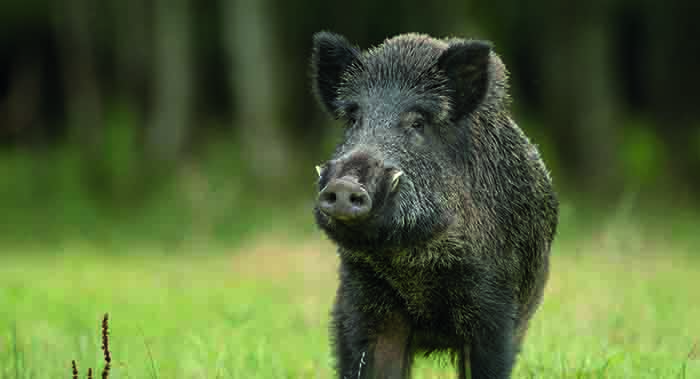In his latest Eastern European update, Russian journalist Vladislav Vorotnitkov takes a look at the latest measures being taken to deal with African swine fever
While Asian countries have been shackled by the rapid spread of African swine fever (ASF), veterinary services in eastern Europe have reported some big gains in their battle against the disease.
Only 21 ASF outbreaks have been reported in Ukraine since the start of the year, according to Boris Kobal, deputy director of the Ukraine state veterinary service.
Last year, a total of 88 outbreaks were recorded, one more than in 2017, Mr Kobal said during a briefing in Kiev in May.
Mr Kobal highlighted the combined efforts of government agencies, farmers and meat processors in improving the situation. But he stressed that, although the overall number of outbreaks is significantly down when compared to the previous two years, the current situation with ASF in Ukraine can still hardly be described as positive.
Despite signs of improvement, the Ukraine Centre for Improving Efficiency in the Livestock Industry claimed that industrial farms are covering up outbreaks all over the country. Director Nikolay Babenko said that farmers run the risk of going bankrupt when faced with an ASF outbreak as they are not receiving any state aid.
For most farmers, the only way to avoid that is to urgently sell out the entire pig stock – and this is contributing to the further spread of the disease, Mr Babenko said.
Brighter picture in Russia
In Russia, there has been a significant reduction in the number of outbreaks in 2019, according to veterinary body Rosselkhoznadzor, which has reported just seven outbreaks since the turn of the year – six of which were in the wild.
The number of outbreaks on farms has steadily declined since 2016, when the epidemic reached its peak in Russia, with 222 outbreaks confirmed on farms. That fell to 149 in 2017 and 59 in 2018.
There are still no official ASF outbreaks in Belarus, although some local independent news outlets have reported suspicious cases where dead pigs were found.
In 2018, Russian Agriculture Minister Alexander Tkachev accused the Belarus authorities of hiding the disease, when products containing the ASF genome were imported from Belarus into Russia. Belarus officials have still not confirmed that any outbreaks have occurred.
Imports bringing in ASF
The figures don’t include incidences when infected products have been found on grocery shelves. In May, Rosselkhoznadzor reported that sausages with the ASF genome had been imported from China. Deputy director Nikolay Vlasov said the sausages did not contain the live virus, although there are concerns that some types of sausage do not undergo heat treatment, meaning ASF could be present in the form of a live virus that could cause an outbreak among pigs.
Rosselkhoznadzor is seeking the right to strengthen Russia’s border controls, and to sterilise all vehicles coming into Russia from countries with active ASF outbreaks, as well as destroying all meat products carried by Russian citizens returning from these countries.
Extreme measures considered
For more than two years, the eastern members of the EU, including Poland and Lithuania, have been mulling the idea of building a fence on the border with Belarus and Russia, to protect their territories from infected wild boar. The idea was not supported by western members, so the project has been cancelled.
Instead, Poland is considering asking the army to shoot wild boar. It is known that Russia, China and Vietnam have been using soldiers to help to handle the consequences of ASF outbreaks, but this is the first time military forces have been used to wage war against the animals.




